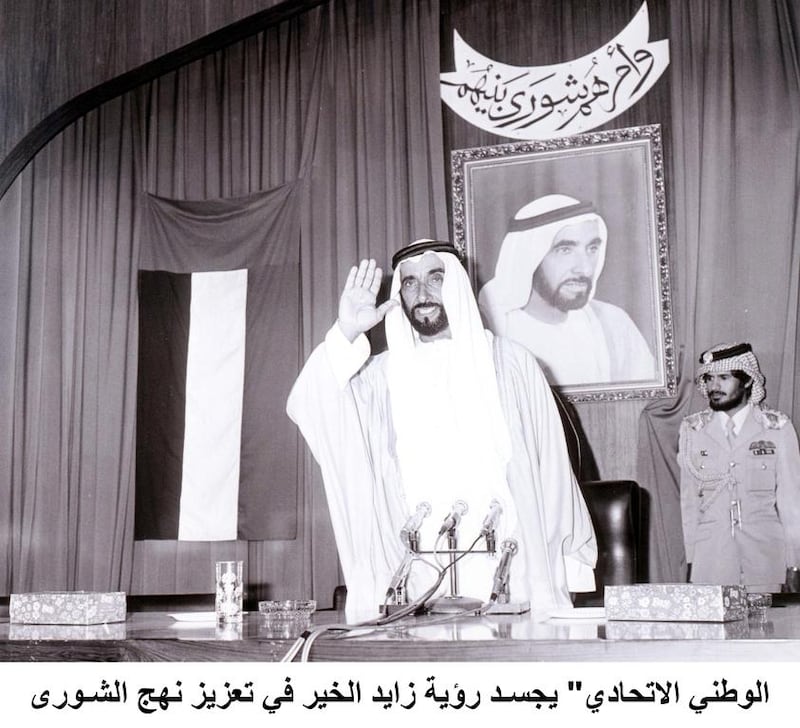As the Year of Giving draws to a close, preparations are under way for its 2018 successor, the Year of Zayed, providing us, in the words of the Crown Prince of Abu Dhabi, Sheikh Mohammed bin Zayed "with a unique opportunity to share our pride in the timeless legacy of Sheikh Zayed."
At one level, it’s pretty clear what that legacy is. It’s all around us – the infrastructure of the state, its roads, schools, hospitals, education system and more. He prepared the foundations; his efforts and determination provided the building blocks of today’s UAE, while, as captain of the ship of state, safeguarding the country from the impact of events nearby.
When Britain announced in January 1968 that it was to leave the region by the end of 1971, it was only weeks after their withdrawal from Southern Arabia, which became the Marxist-dominated South Yemen. A mere seven months earlier, the Arab-Israeli War of June 1967 had concluded with a humiliating defeat for Egypt, Syria and Jordan. Cautious observers predicted that the federation that emerged in December 1971 would probably be short-lived, as an arrogant neighbour gobbled up the islands of Abu Musa and Greater and Lesser Tunb.
As Sheikh Zayed and his fellow rulers worked to build the federation, problems in the region continued. In the years after the formation of the federation and the death of Sheikh Zayed, conflict continued to wrack the region, like the Iranian revolution, the Iran-Iraq War and the invasion and then the liberation of Kuwait. A see-sawing of oil and gas prices affected our economy. The collapse of the Soviet Union changed the nature of the interplay of great power politics in the region. Through it all, the UAE continued to make progress.
In assessing Zayed’s legacy, all that needs to be taken into account.
So too does what can be described as the philosophical component of his legacy. If a commitment to tolerance and diversity is a fundamental part of the UAE today, that's because he built the state on that basis. The empowerment of women, the belief that it is the duty of Government to devote attention to ensuring that the fruits of wealth should be devoted to the benefit of the people – these are also part of what he left to us. So too is the belief that it is right and proper for the UAE to help those in other countries who lack our material resources or whose lands are subjected to the impact of natural and man-made disasters.
All of that will be part of the efforts to be made over the next year to educate those living here today, whether citizens or expatriates, about his achievements.
_________________
Read more from Opinion
[ Are airlines' class systems turning into caste systems? ]
[ Some thought the terrorists were after Egypt's Christians. Turns out, they are after everyone ]
[ Zimbabwe's regime change is a reset of where power lies ]
_________________
For a growing number of people, of course, he is simply an historical figure, someone to be taught about in school, to read about in books or to see on film. As the years pass, memories will fade. It’s all the more important, then, that particular effort is made over the next 12 months to encourage those who have personal recollections to share them, to underline the essential humanity and dignity of the man. The affection he so clearly showed for all children, not just his own, his devotion to his people, his deep personal fascination with the land and environment, his ability to inspire and, yes, even his sense of humour – all of these are also part of Zayed.
Perhaps, over the course of the next year, I’ll share a few anecdotes of my own, mere trifles though they may be. Others, though, have much more to share. I hope they will do so, to give the UAE’s youngsters an understanding of Zayed the Man. His works are there for all to see. Of equal or greater importance, though, is the need to impart to the younger generation just why it is that he lives on in our hearts.





